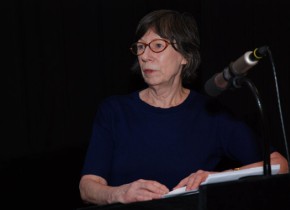This video supports Laura Mulvey's ideas of female inferiority and objectifications within music videos.
Laura Mulvey is a feminist who wrote an essay expressing her concerns on how the media industry shapes societies views on women, more specifically, she expressed that part of the reason why todays society is patriarchal is because of the media industry.
Some of Laura Mulvey's key points, evidenced in Rihanna's video, are the following;
- Erotic desire
Laura Mulvey states that often there are characters in films and music videos that are present only as an object of erotic desire, these characters are almost always female, with very rare examples of them being male. An object of erotic desire can be identified through the use of specific and deliberate camera angles focusing on body parts males are expected to be attracted to, or even just generally very revealing clothing.
- Agency
Agency refers to freedom and acting in the way one desires to, as opposed to following a certain set of rules, being objectified. Laura Mulvey believes that in the typical Hollywood film, the main protagonist who is typically male always has agency, fulfilling an active role and advancing the plot forward, whereas the female characters typically take a more passive role, only having the power to observe and react to the plot advancements made by the other characters, thus meaning they do not have agency. There are very few famous examples of where female characters are given agency, these include The Hunger Games and the Alien series.
- The Male Gaze
Mulvey believed that the camera was the gaze of the male eye. This means that the events of the text are seen through the eyes of a male. This makes the male gaze active and explains why there is sometimes so much screen time focused on things that attract men. This includes women dressed and filmed in a way that objectifies them. This also means that the female gaze is passive, as they have no control but to view films and videos through the eyes of a male. The triple gaze theory suggests that there is a chain of three things when viewing any film, there's the audience, the camera and the spectator, together, they often objectify females, as argued by Mulvey.

No comments:
Post a Comment